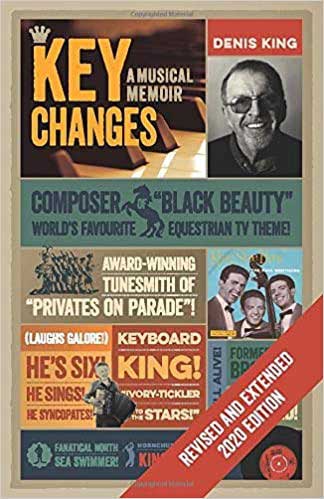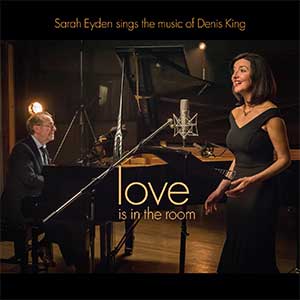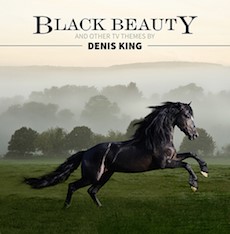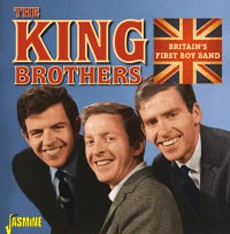SHORT HISTORY OF THE SHORT KING BROTHERS
My father Bill, a Ford Motor Company engineer, was an amateur musician who could play a tune on anything you put in front of him. I’m told that one day when I was about six I sat down at the piano and played exactly what he had just played, Cole Porter’s “Don’t Fence Me In”, note for note. His pipe fell out of his mouth. Excitedly, he called my mother in from the kitchen and asked me to play it again, which I did, and her mouth dropped open. I don’t remember any of it, or how I was able to do what I did. I can’t explain it. My hands, as they still do today, just sort of knew where to go.

Dad immediately found me a piano teacher and was soon entering me in local talent competitions. Billed as “He’s Six! He Sings! He Syncopates!”, a slogan which sounds to me suspiciously like a Bill King original, I entertained children at Saturday morning matinees at the Towers Cinema, Hornchurch, Essex, where we lived, playing a banjolele and singing “Bell Bottom Trousers, Coat of Navy Blue”. I recall Grandpa King watching from the back of the cinema once, and running up the aisle into his arms. He lifted me up and with tears in his eyes (I’m told), pressed half a crown into my tiny hand. My first paid job. Be nice to think I still have it, framed, but it more than likely went to help pay the milk bill.
When my father decided to expand the act, Mike, my eldest brother by four years, needed no encouragement, despite a limited musical ability. Dad taught him a few chords on the guitar, I played the piano and accordion and sang harmony, neither of our voices had broken, and off we went, bringing the house down--and I speak with some authority here, thanks to Mrs. Winifred King’s foresight in keeping scrapbooks of her sons’ triumphs--at such veritable venues as the Railway Hotel, Dagenham (in aid of The Ford Angling Society), the Rex Cinema Collier Row (where we won a silver cup) and I wouldn’t be at all surprised if the audience at the Ford Canine Section’s First Smoking Concert 1951 is still talking about us. My mother then wrote to the BBC to get us an audition but we were turned down because I was too young.

It soon dawned on my father that a duo could very easily become a trio. Tony, my middle brother, by his own admission, was not naturally musically gifted, but through sheer determination and perseverance became a more than competent bass player (and in fact has only recently given it up--he’d been playing in a local pit orchestra in Folkestone until he began suffering from narcolepsy, and when the drummer began having to poke a stick at him to wake him for the next cue, Tony figured it might be time to pack it in).
A year later we auditioned for the BBC and were accepted. Without wishing to give the impression that I spend my days scouring the world’s press for inaccuracies in King Brother reportage, I am obliged to mention here that contrary to every biog or blurb I’ve ever read on the subject, we did not appear on Huw Weldon’s TV show “All Your Own”, I never even met the man. Our first appearance on television was in 1952 on “Shop Window”.
We were spotted there by Max Bygraves’ wife, Blossom, after which we appeared on Max’s own television show “A Good Idea, Son”. According to the Romford Times of May 6, 1953, I provided a “fine” impersonation of Rose Murphy The Chee-Chee Girl singing her hit “Me And My Sha-Sha-Shadow”, which strikes me now as a curious choice, since Rose Murphy was a large fat black American singer-piano player, and I wasn’t, and am still not, but the number went over surprisingly well.
Miraculously, we turned professional. Dad secured us a manager of sorts, a Mr. Ron Sensier, somebody he knew from Fords, and it was Ron’s job to find us work and advise us on material. Mr. Sensier was hardly Ford’s answer to Hollywoods’s Swifty Lazar, given that he normally installed head gaskets and wasn’t remotely connected to show business, so how we actually got any gigs I have no idea but we seemed to be busy.

By the time I turned thirteen I was on the road touring in weekly Twice-Nightly Variety. (Our delightful baby sister Moira, although very musical, was never considered by our dad to be part of the act, but to my knowledge she wasn’t interested in peforming anyway.) I would be dropped off by my brother Mike (my chaperone, aged seventeen) at a different school every week in a different town, where I’d sit at the back of the class with a book, understanding nothing that was going on. We toured US Air Force bases around the country, made another “Shop Window” appearance on TV, and performed at numerous local charity concerts. The concert at the Gaumont State Cinema, Kilburn sticks in my mind particularly.
With over four thousand seats, the Gaumont was the biggest cinema in the country. The design was inspired by the Empire State Building and its fully-equipped stage was one of the largest ever built, being one hundred feet wide and fifty feet deep, and the orchestra pit was on a hydraulic lift which could be raised to stage level. The producer of the concert had the then novel idea of setting the King Brothers on this lift, pre-set in the bowels of the theatre. As our number began, we would be slowly raised to normal stage level to perform our act, after which we’d be lowered back down. It worked perfectly in rehearsal. Not quite so perfectly on the night.
We were introduced and, down below, on cue, we launched into our song, “Running Wild” as the lift began its ascent:
"RUNNING WILD, LOST CONTROL
RUNNING WILD, MIGHTY BOLD
FEELING GAY, RECKLESS TOO
CAREFREE MIND, ALL THE TIME, NEVER BLUE...."
At which point the lift shuddered and stopped. The top halves of Mike and Tony were in view but as I was sitting at the piano when things ground to a halt, my head level with the pit rail, all the audience could see of me was from the nose upwards, like one of those bald cartoon characters one draws looking over a fence. Not knowing what else to do, we carried on playing and singing as if nothing were wrong.
"ALWAYS GOING, DON’T KNOW WHERE
ALWAYS SHOWING, I DON’T CARE..."
The audience started to titter. Below us, all hell was breaking loose as stagehands shouted and hammered and banged on the mechanism.
"AIN’T GOT NOBODY, IT AIN’T WORTHWHILE
ALL ALONE, RUNNING WILD..."
Titters grew into chuckles, which grew into guffaws, and by the time we reached my piano solo we were getting more laughs than the comedian who’d preceded us. There was a sudden lurch, and the lift started to move again. Expectations grew, but not for long, as the lift went down, not up. The audience became hysterical. My head gradually disappeared from view, Tony’s and Mike’s followed, and our final chorus was sung underneath the stage to a bunch of bewildered, head-scratching stagehands. The Gaumont State is now a Grade II listed building (nothing to do with the Disappearing King Brothers) and has recently been bought by a church.

Along with concerts and tours at home and around Europe, we did summer shows, more TV, stints at the Windmill Theatre and in 1956 became the youngest Variety act to play the London Palladium. Within a year we were in the record charts. “A White Sport Coat” and “Standing On The Corner” were our biggest successes. Over the years we worked with jugglers, acrobats, animal acts, trapeze acts, ventriloquists, strong men, singers, dancers, comedians, magicians, escapologists, illusionists, mind-readers, and a man who hit himself over the head with a tin tray. We appeared with Peter Sellers, Harry Secombe, Frankie Vaughan, Roy Castle, Shirley Bassey, Alma Cogan, Ronnie Corbett, Bruce Forsyth, Morecambe and Wise--so many--as well as American stars like Bobby Darin, Howard Keel, Sammy Davis Jr, Judy Garland, Lena Horne, Sarah Vaughan, Sophie Tucker and my hero, Frank Sinatra, who said “Hiya, kid!” to me as he breezed past to his waiting limo, a moment which comes very close to being the highlight of my whole career.
As we got older, it became increasingly difficult to remain “Britain’s Teenage Rhythm Stars”. By the time I’d hit thirty, work had pretty much dried up. Variety was dead, the music scene had changed, and the King Brothers were ekeing out a living in working men’s clubs and the kind of places that made the Railway Hotel, Dagenham seem like The MGM Grand in Vegas. Finally, one night in 1970, having played to six Arabs and a Bunny in the Playboy Club on Park Lane, I decided I’d had enough. I knew what I wanted to do and it wasn’t this. We three boys had a meeting, agreed to call it quits, and the matching blazers with the KBs on the pockets that Mum had lovingly sewn on, went into the attic. It was the saddest day of my father’s life, not counting the Manchester United air crash of 1958.





